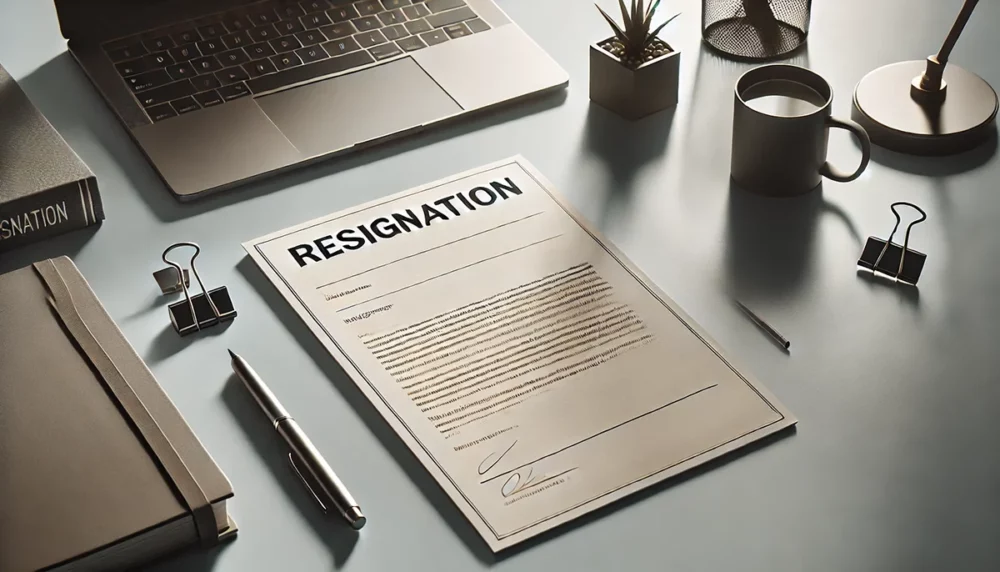Termination during probationary period: Rights, rules and practical tips for employees

This article contains the terms and conditions valid for the Czech Republic.
The probation period is a crucial phase at the beginning of an employment relationship, offering both parties the opportunity to decide whether the collaboration meets their expectations and whether they can look forward to a long-term partnership. Think of it as the first chapter of a new relationship—each party has certain expectations, yet there’s room for a change of heart if reality doesn’t align with initial promises. The probation period provides flexibility and protection for both the employee and the employer.
What Is a Probation Period and Why Does It Exist?
A probation period typically lasts three months, giving employees enough time to gain a realistic understanding of their daily responsibilities, team dynamics, company culture, and the overall atmosphere. At first, a new job might feel exciting and challenging, but as time goes on, small misalignments can become apparent. Perhaps tasks are more demanding than expected, or the work environment doesn’t suit your preferences.
For employers, it’s a chance to confirm if the employee is the right fit, while employees can decide if they made the right choice. Employers evaluate performance, team compatibility, and alignment with company values during this period. The probation period allows either party to end the relationship without the complexities of a formal termination process.
Termination During the Probation Period: How Does It Work?
Termination during the probation period is simpler and more flexible compared to standard employment. There’s no need to observe a notice period or provide reasons for ending the employment. It’s enough to inform the other party, and the employment ends on the date specified in the written notice. This “quick exit” benefits employees who want to leave promptly and employers who find that a new hire does not meet their expectations. Despite this flexibility, legal conditions must be met to ensure the termination is valid and unchallengeable.
Key Aspects of Probation Termination:
- Written Form: The termination must always be in writing. Oral agreements can lead to misunderstandings and legal disputes. A termination without a written document holds no legal weight.
- Proper Delivery: The document must be delivered personally or via registered mail with acknowledgment of receipt. Email delivery is valid only with a certified electronic signature.
- Clear Content: The termination notice must be clear and unambiguous to avoid doubts about its intent. Pre-prepared templates can save time and ensure nothing important is overlooked.
- Legal Compliance: Employers must ensure the termination adheres to labor laws to avoid potential disputes, especially regarding discriminatory behavior.
How to Write a Probation Termination Letter?
Even though the probation period allows for quick termination, the notice must meet formal requirements. If you’re unsure how to draft it, use online templates to ensure all necessary details are included.
Essential Elements:
- Identification: Include basic details about both parties. The employee’s name, address, and position should be listed, as well as the employer’s company name, address, and the name of the person receiving the notice.
- Termination Statement: Keep the wording brief and clear, such as: “I hereby terminate my employment during the probation period as of [date].”
- Date and Signature: Ensure the document is dated and signed. For electronic submissions, a certified digital signature is required.
- Delivery Method: Personal delivery minimizes the risk of document loss. If that’s not possible, use registered mail with proof of delivery.
Consequences of Termination During Probation
Terminating employment during the probation period has different implications for employees and employers. Employees generally forfeit severance pay and must address health and social insurance contributions on their own or register with the unemployment office. For employers, contributions cease upon termination, and they are free to seek a better-suited candidate.
Employer Termination Rules:
Employers can terminate employment during probation if the employee doesn’t meet expectations due to inadequate skills, poor work ethics, or unsuitable behavior. However, termination must not violate anti-discrimination laws. For instance, firing someone due to pregnancy or health issues is prohibited.
Common Mistakes and Best Practices
When terminating during probation, avoid these common errors:
- Relying on oral agreements or unsigned documents, as they are legally invalid.
- Overlooking the importance of professional communication to maintain a smooth process.
A clear and concise approach minimizes misunderstandings and leaves a positive impression.
Termination as an Opportunity for Growth
Probation termination can be a challenging decision but often leads to positive changes. It’s not a failure; instead, it’s an opportunity to leave an unsuitable situation and pursue better opportunities for growth and fulfillment.
FAQ – Common Questions About Probation Termination
Can I terminate my contract via email?
Yes, but it must include a certified electronic signature. Without this, the notice might not be legally binding.
Do I need to provide a reason for termination?
No, neither party is required to justify their decision during the probation period.
Am I eligible for unemployment benefits after termination?
You may be eligible if you meet the legal requirements, such as sufficient prior employment.
Can an employer terminate me during sick leave?
Yes, employers can terminate employment during probation even if the employee is on sick leave, provided it complies with legal standards.
Can I rescind my termination notice?
Only with the other party’s agreement. Once submitted, the notice cannot be withdrawn unilaterally.
By approaching the process with professionalism and adhering to legal requirements, both employees and employers can navigate probation terminations smoothly and constructively.



